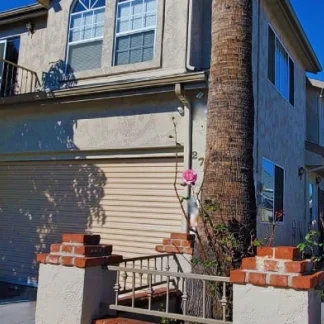Fred Brown Recovery Services - 278 West 14th Street
Fred Brown Recovery Services – 278 West 14th Street of Central California offers...
Fred Brown Recovery Services – Women’s House is a drug and alcohol rehab that supports women aged 18 and older in the Los Angeles, California area. Progress House also provides supportive community resources, referrals, and transitional housing.
Services at Fred Brown Recovery Services – Women’s House include mental health assessments, residential treatment, counseling, and sober living.
Mental health assessments help staff evaluate participants’ mental health for substance use disorder and its severity. The information is used to create an individualized treatment plan, which may involve individual, group, and family counseling.
The Women’s House at Fred Brown Recovery Services provides a structured recovery program for women to overcome substance use disorders. Program activities include individual and group counseling, education, life skills, support groups, and recreational activities. Treatment is for adult women (18+) and begins with an assessment and the development of an individualized plan of care. The program is staffed 24 hours a day with professional counselors and peer support staff.
The sober living residence at Fred Brown Recovery Services is for women aged 18 and older. The recovery residence provides a structured living environment with guidelines and house rules, which may include attending regular recovery meetings, finding employment, and doing household chores. Participants may also be required to submit to a random drug screening to ensure compliance with the program rules.
Contact us for more information: (310) 519-8723

Connect with Fred Brown Recovery Services - Women's House by calling their admissions team directly.
(310) 519-8723 Website Get DirectionsWhether a marriage or other committed relationship, an intimate partnership is one of the most important aspects of a person's life. Drug and alcohol addiction affects both members of a couple in deep and meaningful ways, as does rehab and recovery. Couples therapy and other couples-focused treatment programs are significant parts of exploring triggers of addiction, as well as learning how to build healthy patterns to support ongoing sobriety.
Research clearly demonstrates that recovery is far more successful and sustainable when loved ones like family members participate in rehab and substance abuse treatment. Genetic factors may be at play when it comes to drug and alcohol addiction, as well as mental health issues. Family dynamics often play a critical role in addiction triggers, and if properly educated, family members can be a strong source of support when it comes to rehabilitation.
Group therapy is any therapeutic work that happens in a group (not one-on-one). There are a number of different group therapy modalities, including support groups, experiential therapy, psycho-education, and more. Group therapy involves treatment as well as processing interaction between group members.
In individual therapy, a patient meets one-on-one with a trained psychologist or counselor. Therapy is a pivotal part of effective substance abuse treatment, as it often covers root causes of addiction, including challenges faced by the patient in their social, family, and work/school life.
Research clearly demonstrates that recovery is far more successful and sustainable when loved ones like family members participate in rehab and substance abuse treatment. Genetic factors may be at play when it comes to drug and alcohol addiction, as well as mental health issues. Family dynamics often play a critical role in addiction triggers, and if properly educated, family members can be a strong source of support when it comes to rehabilitation.
Group therapy is any therapeutic work that happens in a group (not one-on-one). There are a number of different group therapy modalities, including support groups, experiential therapy, psycho-education, and more. Group therapy involves treatment as well as processing interaction between group members.
In individual therapy, a patient meets one-on-one with a trained psychologist or counselor. Therapy is a pivotal part of effective substance abuse treatment, as it often covers root causes of addiction, including challenges faced by the patient in their social, family, and work/school life.
Group therapy is any therapeutic work that happens in a group (not one-on-one). There are a number of different group therapy modalities, including support groups, experiential therapy, psycho-education, and more. Group therapy involves treatment as well as processing interaction between group members.
In individual therapy, a patient meets one-on-one with a trained psychologist or counselor. Therapy is a pivotal part of effective substance abuse treatment, as it often covers root causes of addiction, including challenges faced by the patient in their social, family, and work/school life.
In individual therapy, a patient meets one-on-one with a trained psychologist or counselor. Therapy is a pivotal part of effective substance abuse treatment, as it often covers root causes of addiction, including challenges faced by the patient in their social, family, and work/school life.
Fred Brown Recovery Services – 278 West 14th Street of Central California offers...
BHS - Joint Efforts, located in Los Angeles, California, provides alcohol and dr...
Flossie Lewis New Life Recovery is a drug rehab facility in Long Beach, Californ...
The Beacon House Association of San Pedro- 1003 Beacon Street, located in Los An...